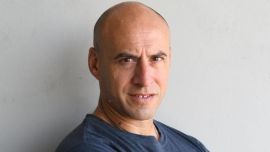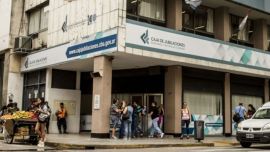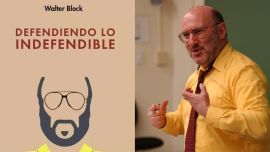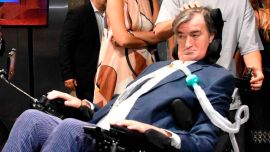In pharmacies in crisis-riddled Argentina, people look at the prices on medicine containers, then put them down again. Some have abandoned their treatments for hypertension or cholesterol. Others have stopped receiving medicines from the state that are crucial to their survival, while the government audits the welfare system.
Even prescription antibiotics and chronic treatments are being ditched in a country where annual inflation exceeding 250 percent means that healthcare has become a luxury for many.
"Between eating and buying medicine, people choose to eat," pharmacist Marcela López told AFP from behind her counter in the capital, Buenos Aires.
Those who can't afford to buy antibiotics, cope with the pain with ibuprofen.
Medicine sales in the country dropped by 10 million units – bottles or boxes – in the month of January, according to the CEPROFAR pharmacists' association. More than two-thirds were prescription drugs.
Desperate patients also feel abandoned by the public health system, where many medicines have become unavailable and unaffordable since the government of President Javier Milei, who took office in December, ordered an audit as part of his quest to slash public spending.
Viviana Bogado, a 53-year-old cook, said she had to choose between treatment for her cholesterol and antibiotics and special food for her 16-year-old son, Daniel, for an intestinal bacteria. She put her son first.
"I have to buy him milk that is three times more expensive than regular milk, plus antibiotics and digestive [pills]. I had to choose, either his treatment or mine for cholesterol," says the 53-year-old cook.
Since self-styled "anarcho-capitalist" Milei took over, medicine prices have risen 40 percent above inflation, itself at 254 percent year-on-year and one of the highest in the world.
At the same time, poverty levels have reached nearly 60 percent in a country where the minimum salary is the equivalent of about US$200.
According to CEPROFAR (Centro de Profesionales Farmacéuticos Argentinos) director Ruben Sajem, there had been an agreement between laboratories and the pre-Milei government to keep prices low.
That has since been abandoned, along with "regulations and controls from the Trade Secretariat, explains Sajem.
'There is no money'
Pharmacists say many chronic patients were reducing their prescription doses to try and save money.
"This does not serve the patient. Sooner or later their health will worsen and everything will cost more, even for the [public] health system," said Sajem.
Worst hit are the retired and workers in the informal sector, who account for 40 percent of the labour market. For the former, income fell by 32.5 percent year-on-year in February.
The pension drop has made life difficult for people like 73-year-old Graciela Fuentes, who is having a hard time treating her arthritis.
The state provides pensioners with some medicines for free, others at subsidised prices (between 50 percent and 80 percent of the cost).
"I take five remedies: two of which I get free of charge, I spend 85,000 pesos per month (about US$100) – almost a third of my pension. There is no money," said Fuentes in an ironic reference to Milei's oft-used justification for public spending cuts.
For Juan Carlos Orellana, a 55-year-old self-employed bricklayer, the scenario is bleak. Although he can get free treatment at the public hospital, he has no discount on medicines.
"My wife is using a lot of pain medication for hip and spine problems, she has to have an operation," he told AFP.
They get free medicine from a community bank run by the Tzedaká Foundation, a Jewish organisation that gives free medicines to a vulnerable population of 50,000 people a year.
"It helps me a lot financially, I am out of work and I am very grateful, I have no words," he says after collecting the medication.
Fabián Furman, the head of a community medicines bank, told AFP there had been a massive increase in demand for free treatments.
'Pablo has no time'
Pablo Riveros, 20, suffers from paroxysmal nocturnal haemoglobinuria (PNH), a rare, life-threatening disease for which there is no cure.
"It makes me chronically anaemic, I bleed from every cut, I'm very tired," says Riveros, who tries to live a normal life with the disease: he paints, plays the piano and goes to university.
The treatment to alleviate his fast-worsening symptoms costs US$42,000 a month, an impossible ask from his seamstress mother.
After his diagnosis in February last year, Riveros received medication from the public healthcare system. But that stopped in November.
Riveros's family went to court seeking relief, and were told "the state is not denying us medication, but we have to wait for the audit because there is corruption everywhere," his mother Estela Coronel told AFP.
The only problem, "Pablo has no time" to wait, weakening by the day.
The government says it is undertaking an audit of the programme, which falls under the remit of the new Human Capital Ministry.
Presidential Spokesman Manuel Adorni last week denied that drug delivery to patients with cancer and other serious diseases such as Riveros had ever been cut off.
"It’s painful because you feel like they're laughing in your face," said Coronel. "They cannot deny something that we are living."
related news
by Daniel Merolla & Sonia Avalos, AFP


























Comments